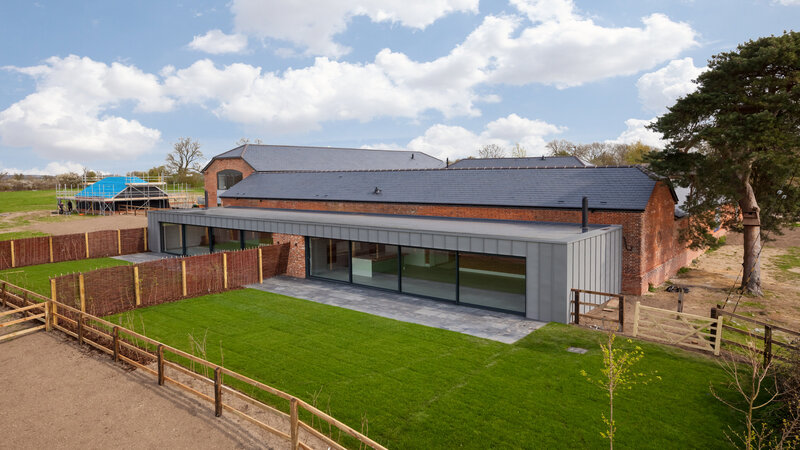Categories
Commercial Mortgage Deposit | Requirements Explained
Are you a UK business owner looking to purchase a commercial property? One of the first questions you'll need to answer is: how much deposit do you need for a commercial mortgage?
As a specialist commercial mortgage broker, we offer tailored solutions with:
- Market-leading rates, up to 80% LTV (20% deposit requirement)
- Commercial & semi-commercial mortgages from £100,000 to £100 million
- Options for portfolios, owner-occupied, and short-term finance (3-24 months)
- Interest roll-up and no early repayment charges
- Coverage across the UK & Ireland, including finance for individuals, limited companies, SPVs, and offshore structures
- Financing for a wide range of properties: retail, offices, warehouses, HMOs, care homes, and more
At Clifton Private Finance, our commercial mortgage brokers play a vital role in helping UK businesses secure favourable terms:
- We have access to a wide range of lenders, including specialist providers
- Our brokers can help negotiate better rates and lower deposit requirements
- We assist in preparing strong applications, potentially leading to better terms
- Our team can advise on creative ways to structure deposits and security
Independent, with access to exclusive lenders, we ensure exceptional service responsive to your needs.
This guide will walk you through everything you need to know about commercial mortgage deposits in the UK, helping you navigate this complex financial landscape with confidence.
In this blog:
What are Commercial Mortgages and How Do They Work?
What is a Commercial Mortgage Deposit?
Typical Deposit Requirements in the UK
Factors Affecting Your Deposit Amount
Options for Low Deposit Commercial Mortgages
Alternative Deposit Funding Sources
Get Expert Commercial Mortgage Advice
What are Commercial Mortgages and How Do They Work?
Before diving into deposit requirements, let's briefly cover what commercial mortgages are and how they function in the UK market.
Commercial mortgages typically have:
- Terms between 10 and 30 years
- Fixed or variable interest rates
- Loan amounts based on the property's value and your broader finances
While similar to residential mortgages, commercial mortgages have some key differences:
- Higher minimum deposits (often 25-30%)
- Shorter maximum terms (usually up to 30 years)
- Stricter eligibility criteria based on your business's creditworthiness
What is a Commercial Mortgage Deposit?
A commercial mortgage deposit is the initial lump sum you'll need to pay upfront when taking out a mortgage to buy a commercial property. It's your stake in the property and helps reduce the lender's risk.
Typical Deposit Requirements in the UK
In the UK, commercial mortgage deposits usually range from 20% to 40% of the property's value. However, the exact amount can vary based on several factors:
Loan-to-Value (LTV) Ratio
Most UK lenders offer commercial mortgages with a maximum LTV of 70-80% for owner-occupied properties and up to 75% for commercial investment properties. This means you'll need to provide a deposit of at least 20-30%.
Type of Property
Different properties may require different deposits. For instance:
- Standard office buildings or retail spaces might need a 25-30% deposit
- Specialised properties like petrol stations or nightclubs might require 35-40% due to perceived higher risk
Your Business Profile
Your credit history, business experience, and financial stability all play a role in determining the required deposit. A strong business profile could lead to lower deposit requirements.
Factors Affecting Your Deposit Amount
Several elements can impact how much deposit you'll need for your commercial mortgage:
- Credit History - Both your personal and business credit histories are crucial. A strong credit profile could lead to lower deposit requirements, while poor credit might mean you'll need to put down more.
- Business Experience - If you're a seasoned business owner with a proven track record, you might be offered more favourable terms, including a lower deposit requirement.
- Industry Risk - Some industries are seen as riskier than others. For example, restaurants and pubs might need larger deposits compared to established office-based businesses.
- Property Type and Use - The intended use of the property and its type can affect deposit requirements. Owner-occupied properties might have different terms compared to investment properties.
- Financial Performance - Your business's financial health, including turnover, net profit, and EBITDA, plays a crucial role in determining deposit requirements and overall loan terms.
Commercial Mortgage Calculator
For a better initial understanding of what you'll pay for a commercial mortgage, use our commercial mortgage calculator.
Benefits of Larger Deposits
While securing a large deposit can be challenging, it offers several advantages:
- Lower interest rates
- Reduced monthly repayments
- Increased likelihood of loan approval
- Potentially more favourable terms
Our team at Clifton Private Finance can help you weigh the pros and cons of different deposit amounts and find the right balance for your business.
Commercial Mortgage Case Studies
Current Market Trends
As of 2024, the UK commercial mortgage market remains competitive, with interest rates varying widely based on individual circumstances. The COVID-19 pandemic has led to some lenders being more cautious, potentially increasing deposit requirements for certain industries.
Get Expert Commercial Mortgage Advice
Navigating the world of commercial mortgages can be complex. At Clifton Private Finance, our commercial mortgage specialists offer a complimentary advice service to help you choose the right finance solution for your business requirements.
Our expert team can help you:
- Find market-leading rates
- Access specialist lenders
- Get professional advice tailored to your needs
- Secure finance quickly - often within 5 to 7 days
Don't let a large deposit requirement stand in the way of your business growth. Call us today on 0117 959 5094 or book a free consultation below to explore your options.
FAQs
Can I get a commercial mortgage with bad credit?
Yes, it's possible, but you may need a larger deposit and face higher interest rates. At Clifton Private Finance, we have experience working with lenders who specialise in bad credit commercial mortgages.
How long does it take to get a commercial mortgage?
The process typically takes 6-8 weeks, but it can be faster or slower depending on the complexity of your application. Our team works efficiently to expedite the process wherever possible.
What's the minimum deposit for a commercial mortgage in the UK?
While it varies by lender and circumstances, you'll typically need at least a 20% deposit for a commercial mortgage in the UK. However, some of our specialist lenders may offer lower deposit options in certain circumstances.
Can I refinance a commercial property to reduce my deposit on a new purchase?
Yes, this is a strategy some business owners use. You can potentially release equity from an existing commercial property to use as a deposit on a new purchase. Our team can help you explore this option.











